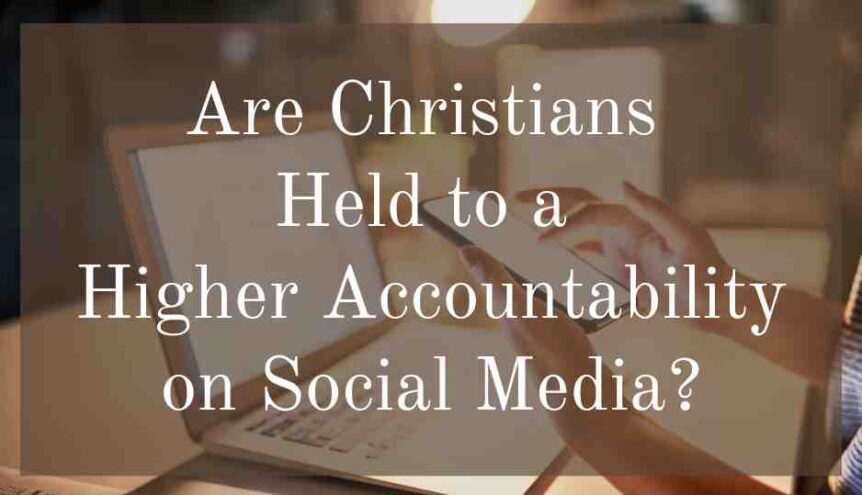Make every effort to live in peace with everyone and to be holy; without holiness no one will see the Lord. See to it that no one falls short of the grace of God and that no bitter root grows up to cause trouble and defile many—Hebrews 12:14-15.
I don’t need to tell you that we are experiencing a very tense political climate in this country right now. Everyone has a strong opinion, and many aren’t shy to share it. This is one reason I rarely write about politics.
No matter what I believe, someone is sure to be offended.
I think Abraham Lincoln said, “You can’t please all the people.” This was an adaption of the original John Lydgate quote, “You can please some of the people all of the time, you can please all of the people some of the time, but you can’t please all the people all of the time.”
This is an appropriate sentiment from a president and poet, but we as Christians aren’t called to please people—even ourselves. We are called to serve God and point others to Jesus by our actions and words.
In the last week, I’ve seen two Facebook posts from self-professing Christians with whom I’m acquainted that made my heart ache. Not because they were sharing their political opinion, but because they spewed such anger and disgust at those who don’t agree with them. It brought to mind epithets like “deplorables” and “garbage.”
The other day, my husband and I discussed the difference between the forgiveness of our sins (by the blood of Christ) and the consequences of our sins.
Before we can be forgiven, we need to be repentant. 1 John 1:9 says, If we confess our sins, he is faithful and just and will forgive us our sins and purify us from all unrighteousness (NIV). Don’t miss that important little word, “If.”
We must first fulfill this condition.
Without a repentant heart, we can easily commit a host of sins and not even feel the Holy Spirit’s conviction. It’s easy for us to justify gossip as concern for those we’re gossiping about or a thoughtless response to our spouse or children as a bad mood.
Or attributing to those who disagree with us as “idiots.”
Sins have consequences. People get hurt. Every nasty response we make to a loved one cuts them. That mid-19th century saying sticks and stones may break one’s bones, but names will never hurt one is wrong. I knew it by the time I was seven.
As Christians, we are called to a higher standard. It doesn’t matter if it’s a one-on-one discussion or sharing our opinions on social media.
“You have heard that it was said to the people long ago, ‘You shall not murder, and anyone who murders will be subject to judgment. But I tell you that anyone who is angry with a brother or sister will be subject to judgment. Again, anyone who says to a brother or sister, ‘Raca,’ is answerable to the court. And anyone who says, ‘You fool!’ will be in danger of the fire of hell” (NIV).
We live in a culture where progressiveness is taking over our churches. Sin isn’t being called out—it’s being celebrated. Don’t like what the Word of God says? Change it. All I can say in response is, “Good luck with that!”
We have put ourselves in the place of God and don’t take into account His holiness. He is a jealous God, and He will not be trifled with.
Sins have consequences.
When we act more like the world than we do Jesus, we are giving a poor testimony to our faith. People pay attention.
Years ago, when I was teaching middle school, there was a group of teachers who were given the moniker Mean Girls. These were teachers, not students. They ran in a pack like a bunch of snarling wolves taking down anyone who dared to stand up to them.
The “gang leader” made a rude comment about another teacher, and I dared to respond with, “She’s trying to do a good thing. We’re like family to her, and I think we should support her.” That’s all it took for me to become the enemy. It felt like eighth grade all over again, being targeted by the school bullies.
At the time, I was a fairly new Christian hungry for the Word of God. When I discovered some of the Mean Girls were also Christians, it broke my heart.
To make matters worse, one of the non-Christian teachers on staff (who was gracious and kind) said, “If that’s what Christianity looks like, I want no part of it.”
This was one small middle school campus. Imagine the impact we have on social media in comparison.
We can easily become a stumbling block to those around us. Consider a new Christian not well-versed in the Bible. If he or she were to read ungodly posts written by self-professed Christians, they could easily be led astray.
In Jesus’ own words, “Get behind me, Satan! You are a stumbling block to me; you do not have in mind the concerns of God, but merely human concerns”—Matthew 16:23.
As Christians, we are held to a higher accountability in this world whether it’s in our families, our churches, our communities, or social media. Words matter. God knows the heart and soul of His children, and He will not turn a blind eye to our sins.
Do not let unwholesome talk come out of your mouths, but only what is helpful for building others up according to their needs, that it may benefit those who listen…Get rid of all bitterness, rage and anger, brawling and slander, along with every form of malice. Be kind and compassionate to one another, forgiving each other, just as Christ God forgave you—Ephesians 4:29-32.







